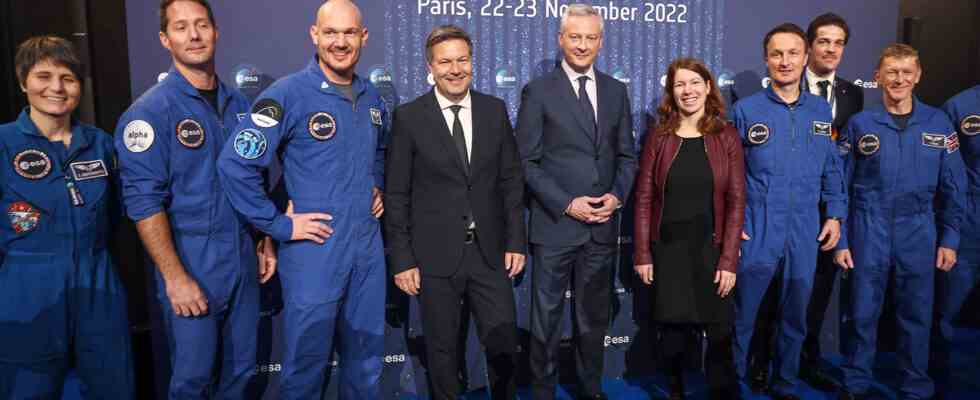Status: 11/22/2022 1:48 p.m
It’s about astronauts, the role of Europe in space – and a lot of money. At its meeting, the ESA Council of Ministers intends to define the strategy for the coming years. Because the Russian war of aggression radiates into space.
The ESA Council of Ministers is intended to be a milestone for European space travel. At least that’s what ESA Director General Josef Aschbacher hopes. The European space agency has to assert itself, otherwise Europe will fall behind: “Many countries are investing heavily in space, and Europe has the quality, the talent, and we have to benefit from these opportunities here. It’s really a collection of opportunities that are developing opens here.”
The Russian war of aggression in Ukraine has shown how important European independence is – also in space. The Mars mission Exomars, originally planned for this fall, had to be put on hold by ESA because the Russian space agency Roskosmos was involved. Russian Soyuz launchers no longer carry European satellites into space. And the first flight of the new European launch vehicle Ariane 6 has been delayed for three years.
Competition with Russia, China and USA
At the start of the meeting in Paris, Federal Minister of Economics Robert Habeck said: “What is happening on earth must also apply to space. A separate sovereignty – satellites and thus security and security communication – must also be guaranteed for space.” It is also a priority to collect our own data on climate change through earth observation.
In order to be able to stand up to Russia, China and the USA, Europe must now act as one, said French Economics Minister Bruno Le Maire. This has not always been the case so far. There are problems with many ESA programs because the 22 member states are partly pursuing national interests. There were always differences, especially between Paris and Berlin.
More competition?
Germany wants more competition, the ESA must also open up to private actors, above all the so-called microlaunchers, i.e. start-ups that develop small launch vehicles for commercial use. France was skeptical for a long time. At the beginning of the ministerial meeting, however, Economics Minister Le Maire gave in.
He hands over the ESA presidency to his German colleague Habeck. Asked about the role of France and Germany, Le Maire explained: “Of course we play the leading role. France and Germany have to stand together. Of course we have different views, but these differences must drive us to find common European positions.”
Promotion of microlaunchers
Together with Italy, France and Germany signed an agreement in the morning that included the promotion of microlaunchers. The three countries have thus paved the way for a joint decision by the ESA member states, which Director General Aschbacher is hoping for: “Commercial use is extremely important for me personally and is also part of our Agenda 2025. And the microlaunchers are a symbol of this, to to drive this commercialization forward. We will discuss today and tomorrow a decision to include microlaunchers in the European launcher family, insofar as ESA satellites can be launched with microlaunchers.”
Aschbacher wants to make ESA competitive and thus independent for the coming years. But you can’t do that without money. He calls for a budget of more than 18 billion euros – around a quarter more than last – for the next three years. The 22 member states, above all Germany and France, have to pay if they want to play another role in the race for the moon, Mars and Co.
More money for European space travel? Kick-off of the ESA Council of Ministers in Paris
Sabine Wachs, ARD Paris, 22.11.2022 11:50 a.m

